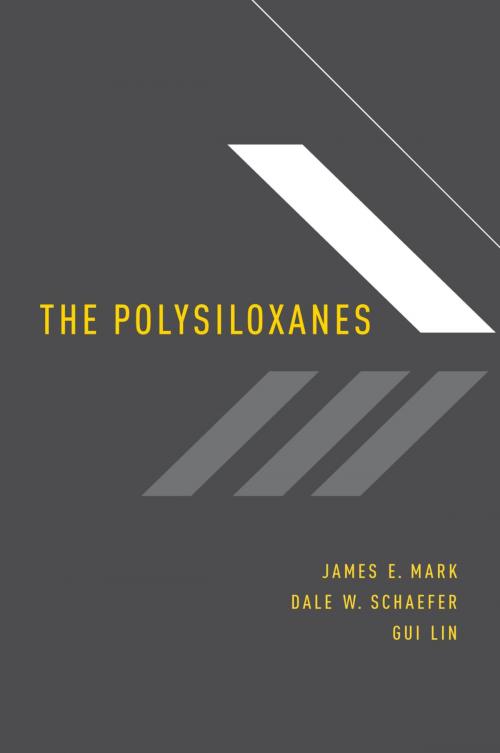| Author: | James E. Mark, Dale W. Schaefer, Gui Lin | ISBN: | 9780190266455 |
| Publisher: | Oxford University Press | Publication: | March 11, 2015 |
| Imprint: | Oxford University Press | Language: | English |
| Author: | James E. Mark, Dale W. Schaefer, Gui Lin |
| ISBN: | 9780190266455 |
| Publisher: | Oxford University Press |
| Publication: | March 11, 2015 |
| Imprint: | Oxford University Press |
| Language: | English |
Polysiloxanes are the most studied inorganic and semi-inorganic polymers because of their many medical and commercial uses. The Si-O backbone endows polysiloxanes with intriguing properties: the strength of the Si-O bond imparts considerable thermal stability, and the nature of the bonding imparts low surface free energy. Prostheses, artificial organs, objects for facial reconstruction, vitreous substitutes in the eyes, and tubing take advantage of the stability and pliability of polysiloxanes. Artificial skin, contact lenses, and drug delivery systems utilize their high permeability. Such biomedical applications have led to biocompatibility studies on the interactions of polysiloxanes with proteins, and there has been interest in modifying these materials to improve their suitability for general biomedical application. Polysiloxanes examines novel aspects of polysiloxane science and engineering, including properties, work in progress, and important unsolved problems. The volume, with ten comprehensive chapters, examines the history, preparation and analysis, synthesis, characterization, and applications of these polymeric materials.
Polysiloxanes are the most studied inorganic and semi-inorganic polymers because of their many medical and commercial uses. The Si-O backbone endows polysiloxanes with intriguing properties: the strength of the Si-O bond imparts considerable thermal stability, and the nature of the bonding imparts low surface free energy. Prostheses, artificial organs, objects for facial reconstruction, vitreous substitutes in the eyes, and tubing take advantage of the stability and pliability of polysiloxanes. Artificial skin, contact lenses, and drug delivery systems utilize their high permeability. Such biomedical applications have led to biocompatibility studies on the interactions of polysiloxanes with proteins, and there has been interest in modifying these materials to improve their suitability for general biomedical application. Polysiloxanes examines novel aspects of polysiloxane science and engineering, including properties, work in progress, and important unsolved problems. The volume, with ten comprehensive chapters, examines the history, preparation and analysis, synthesis, characterization, and applications of these polymeric materials.















